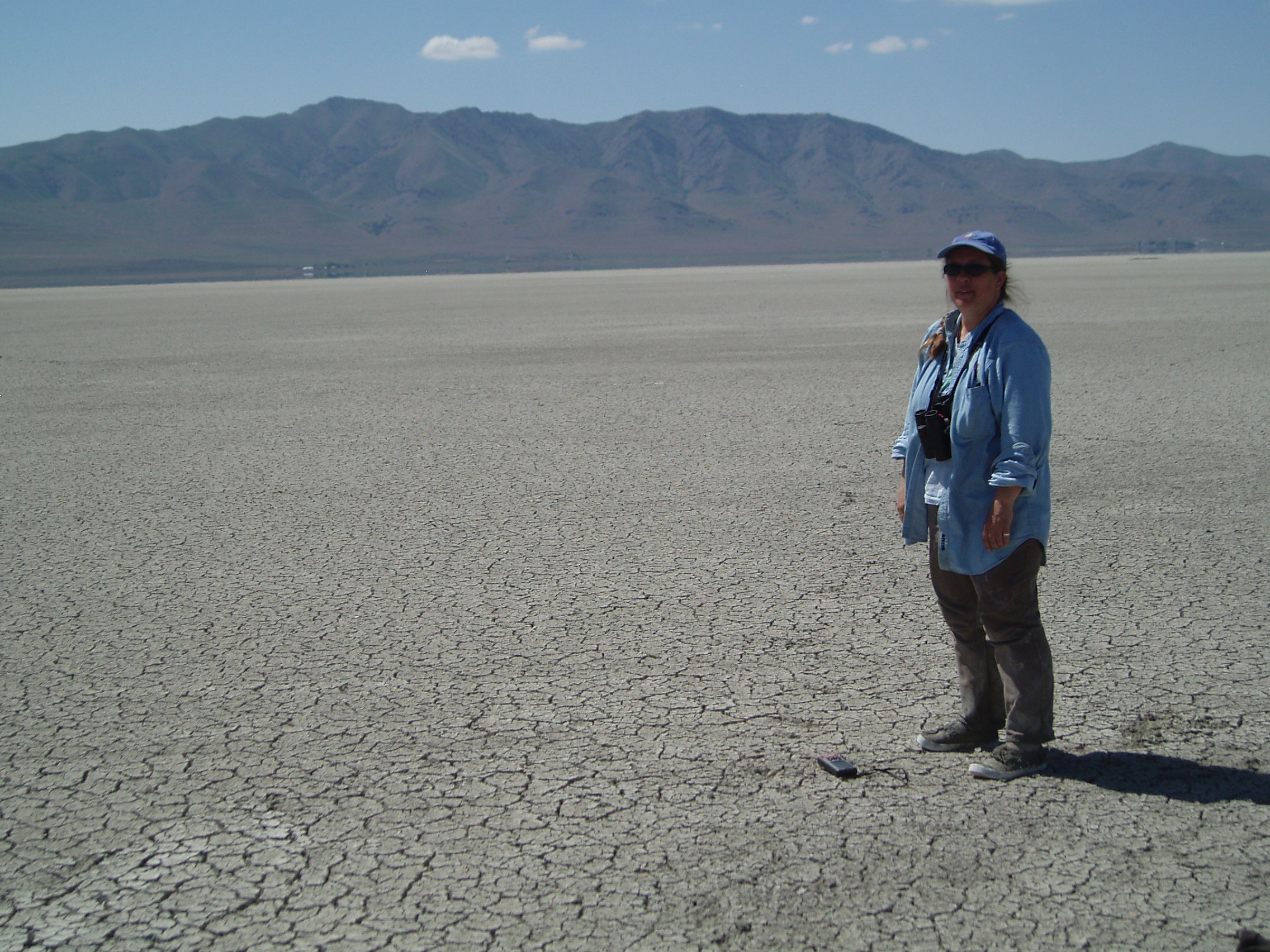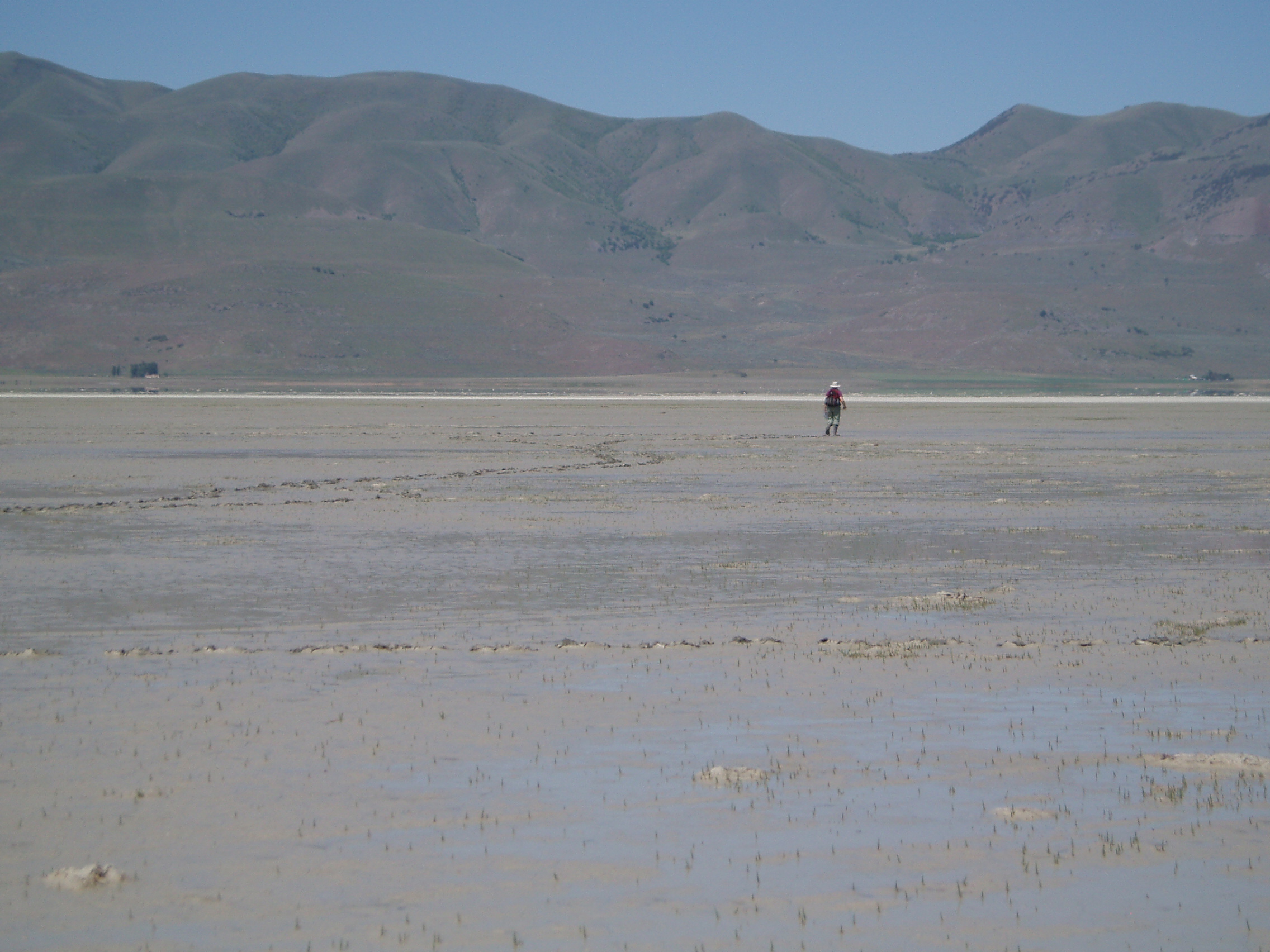|
Great Salt Lake
Snowy Plover Survey
2007 - 2008

Suzanne Fellows (US Fish and Wildlife Service, Region 6)
stands next to a SNPL nest discovered during the survey
Snowy Plover Survey – Great Salt Lake, UT
Summary Report 2007.
Snowy Plover Survey – Great Salt Lake, UT
Summary Report 2008.
The Avian Ecology Lab is coordinating a lake-wide survey of Snowy
Plover. The goal of the survey is to assess the distribution
and abundance of breeding SNPL throughout the entire Great Salt Lake
(GSL) Ecosystem. The GSL survey is part of the US Fish and
Wildlife Service
International Survey of Breeding Snowy Plovers.
Although it would be desirable to count every
plover inhabiting the Great Salt Lake (Lake) during the breeding
season, it became obvious during the development of this survey that
a true census of the Lake’s Snowy Plover population was infeasible
and unrealistic, and that a sampling approach was needed. To
develop the sampling frame, experts designated the Lake’s shoreline
habitats as having known locations of breeding plovers, having the
potential to support breeding plovers, or having low potential to
support breeding Snowy Plovers. Following these probabilities of
encountering Snowy Plovers, sampling intensity will be allocated on
the “potentialness” of the Lake’s habitat; the known location
stratum will receive the most intense effort and the low potential
the least. Within a GIS, these strata were overlaid with a grid of
225-ha clusters of twenty-five 9-ha (300 x 300 m) cells, which
yielded 2,130 sample clusters. A random sample of clusters was
drawn from each stratum across the entire Lake. Because some
clusters will fall in areas that are inaccessible, more units have
been selected than can actually be surveyed. The sampling method is
a two-stage process. First a rapid survey of the cluster is
conducted to 1) determine occupancy of each 9-ha cell within the
225-ha cluster and 2) make an initial count of the number of plovers
in each cell. Second, a follow-up more intensive search of all 9-ha
cells where plovers were detected is conducted to determine total
abundance. Cell densities will be used to generate an estimate,
with confidence intervals, of the Snowy Plover population inhabiting
the Lake during the breeding season. The Lake estimate will be
combined with other estimates from throughout the North American
breeding range to yield an overall estimate of total population
size.
Cooperative Agencies and
Organizations
-
US Fish and Wildlife Service
-
Weber State University
-
UT Division of Wildlife
Resources
-
Antelope Island State Park
-
Kennecott Utah Copper
-
US Magnesium
-
Ft Hays State University
-
University of Nayarit,
Mexico
-
Wasatch Audubon Society
-
Tracy Aviary

Kris Purdy slogging through Great Salt Lake mud in search of SNPL
|
Utahns search for imperiled Snowy Plover - Deseret News
6-07-2007 WSU Students in Search
for Snowy Plover - Standard Examiner 5-23-2007 |